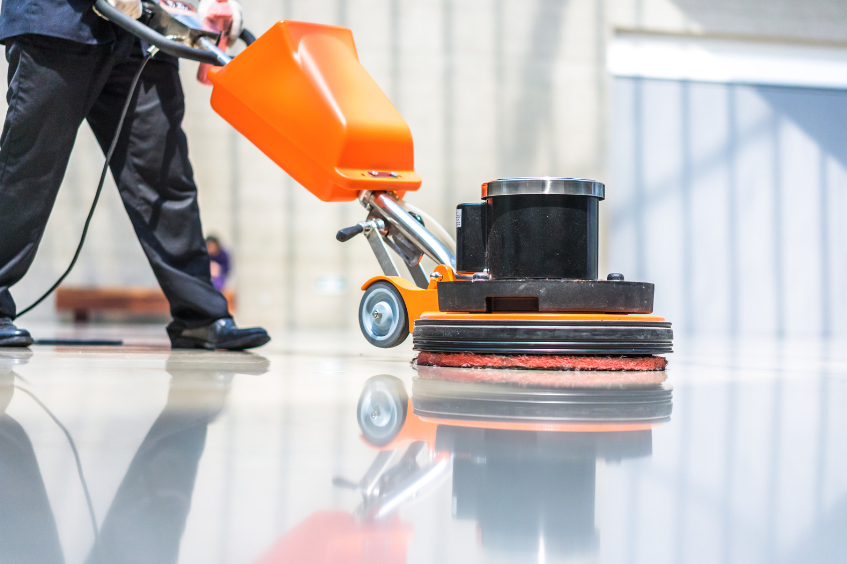Industrial cleaning plays a crucial role in maintaining the operational efficiency and longevity of machinery and equipment. Effective industrial cleaning practices not only ensure that equipment functions smoothly but also contribute significantly to reducing maintenance costs and extending the equipment’s lifespan. In this blog, we’ll delve into how industrial cleaning achieves these benefits and offer expert insights into its importance.
Understanding Industrial Cleaning
Industrial cleaning refers to the systematic process of removing contaminants, residues, and dirt from industrial equipment and facilities. This cleaning can involve various methods, including chemical cleaning, high-pressure washing, and ultrasonic cleaning. Each method is tailored to different types of equipment and contaminants. Understanding industrial cleaning is essential for implementing effective strategies to maintain equipment and ensure operational efficiency.
The Financial Benefits of Industrial Cleaning
Reduction in Maintenance Costs
One of the primary financial benefits of industrial cleaning is the significant reduction in maintenance costs. Regular industrial cleaning prevents the accumulation of dirt and residues that can lead to equipment breakdowns. By keeping equipment clean, businesses can avoid costly repairs and downtime. For example, a case study might show that companies implementing regular industrial cleaning reduced their repair costs by 30%, highlighting the financial advantages of maintaining clean equipment.
Improved Efficiency
In addition to reducing maintenance costs, industrial cleaning enhances the efficiency of equipment. Clean machinery operates more effectively, leading to increased productivity and energy savings. For instance, a well-maintained and clean engine runs smoother and uses less fuel, reflecting how industrial cleaning contributes to both cost savings and operational efficiency.
Extending Equipment Lifespan Through Industrial Cleaning
Prevention of Wear and Tear
Industrial cleaning helps in preventing wear and tear on equipment by removing harmful contaminants that can cause damage. Regular cleaning reduces the risk of rust, corrosion, and other forms of degradation. Industry experts often emphasize that maintaining clean equipment through industrial cleaning practices is crucial for prolonging its operational life and reducing the frequency of replacements.
Reducing Downtime
Another significant benefit of industrial cleaning is the reduction in equipment downtime. Clean equipment is less likely to experience unexpected failures, which means that production processes remain uninterrupted. Real-world examples demonstrate that businesses with scheduled industrial cleaning practices experience less downtime and improved overall productivity.
Best Practices for Industrial Cleaning
Choosing the Right Cleaning Methods
Selecting the appropriate cleaning methods is vital for effective industrial cleaning. Factors such as the type of equipment and the nature of contaminants should guide the choice of cleaning techniques. For instance, chemical cleaning might be more suitable for removing tough residues, while high-pressure washing could be ideal for large surfaces. Professional advice can help in choosing the most effective industrial cleaning methods for specific needs.
Regular Cleaning Schedules
Adhering to a regular cleaning schedule is essential for maintaining equipment through industrial cleaning. Setting and following a consistent cleaning routine ensures that equipment remains in optimal condition. An effective schedule should be tailored to the equipment’s usage and the type of contaminants encountered, ensuring that all aspects of industrial cleaning are addressed.
Expert Opinions and Case Studies
Industry experts agree that industrial cleaning is a key factor in reducing maintenance costs and extending equipment lifespan. Interviews with cleaning professionals reveal that proactive cleaning measures significantly impact equipment longevity and operational efficiency. Additionally, case studies of companies that have successfully implemented industrial cleaning strategies provide valuable insights into the practical benefits and best practices for maintaining equipment.
Technology and Innovations in Industrial Cleaning
Advancements in Cleaning Equipment
Recent advancements in industrial cleaning technology have further improved the effectiveness of cleaning processes. Innovations such as automated cleaning systems and advanced detergents enhance the efficiency of industrial cleaning, making it easier to maintain equipment. These technological advancements not only streamline cleaning procedures but also contribute to better equipment care.
Future Trends
The future of industrial cleaning is likely to see continued innovations, with trends focusing on more sustainable and efficient cleaning solutions. Emerging technologies and practices will further impact how industrial cleaning is conducted, offering even more benefits for maintenance and equipment longevity.
Takeaway
Industrial cleaning is essential for reducing maintenance costs and extending the lifespan of equipment. By implementing effective cleaning practices, businesses can achieve significant financial and operational benefits, including lower repair costs and improved efficiency. To optimise these benefits, it’s crucial to understand and apply best practices in industrial cleaning.











